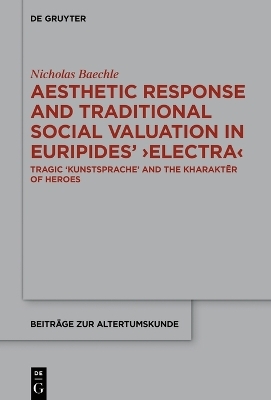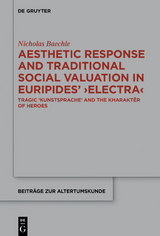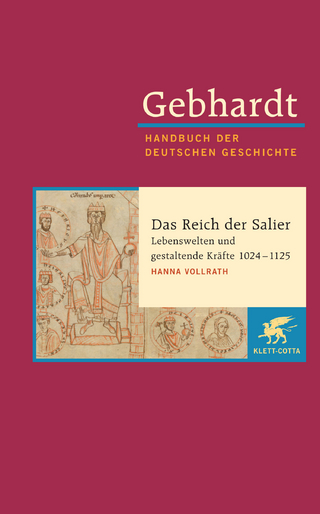Aesthetic Response and Traditional Social Valuation in Euripides’ ›Electra‹
Tragic ›Kunstsprache‹ and the ›kharaktēr‹ of Heroes
Seiten
2020
De Gruyter (Verlag)
978-3-11-061310-0 (ISBN)
De Gruyter (Verlag)
978-3-11-061310-0 (ISBN)
Die Beiträge zur Altertumskunde enthalten Monographien, Sammelbände, Editionen, Übersetzungen und Kommentare zu Themen aus den Bereichen Klassische, Mittel- und Neulateinische Philologie, Alte Geschichte, Archäologie, Antike Philosophie sowie Nachwirken der Antike bis in die Neuzeit. Dadurch leistet die Reihe einen umfassenden Beitrag zur Erschließung klassischer Literatur und zur Forschung im gesamten Gebiet der Altertumswissenschaften.
Euripides’ Electra opened up for its audience an opportunity to become self-aware as to the appeal of tragic Kunstsprache: it both reflected and sustained traditional, aristocratically-inflected assumptions about the continuity of appearance and substance, even in a radical democracy. A complex analogy between social and aesthetic valuation is played out and brought to light. The characterization of Orestes early in the play demonstrates how social appearances made clear the identity of well-born, and how they were still assumed to indicate superior virtue and agency. On the aesthetic side of the analogy, one of the functions of tragic diction, as an essential indication of heroic character and agency, comes into view in a dramatic and thematic sequence that begins with Achilles ode and ends with the planning of the murders. Serious doubts are created as to whether Orestes will realize the assumed potential inherent in his heroic genealogy and, at the same time, as to whether the components of his character as an aesthetic construct are congruent with such qualities and agency. Both sides of this complex analogy are thus problematized, and, at a metapoetic level, its nature and bases are exposed for reflection.
Euripides’ Electra opened up for its audience an opportunity to become self-aware as to the appeal of tragic Kunstsprache: it both reflected and sustained traditional, aristocratically-inflected assumptions about the continuity of appearance and substance, even in a radical democracy. A complex analogy between social and aesthetic valuation is played out and brought to light. The characterization of Orestes early in the play demonstrates how social appearances made clear the identity of well-born, and how they were still assumed to indicate superior virtue and agency. On the aesthetic side of the analogy, one of the functions of tragic diction, as an essential indication of heroic character and agency, comes into view in a dramatic and thematic sequence that begins with Achilles ode and ends with the planning of the murders. Serious doubts are created as to whether Orestes will realize the assumed potential inherent in his heroic genealogy and, at the same time, as to whether the components of his character as an aesthetic construct are congruent with such qualities and agency. Both sides of this complex analogy are thus problematized, and, at a metapoetic level, its nature and bases are exposed for reflection.
Nicholas Baechle , Hanover College, Hanover, IN, U.S.
| Erscheinungsdatum | 29.06.2020 |
|---|---|
| Reihe/Serie | Beiträge zur Altertumskunde ; 379 |
| Verlagsort | Berlin/Boston |
| Sprache | englisch |
| Maße | 155 x 230 mm |
| Gewicht | 386 g |
| Themenwelt | Geschichte ► Allgemeine Geschichte ► Altertum / Antike |
| Geisteswissenschaften ► Sprach- / Literaturwissenschaft ► Literaturwissenschaft | |
| Schlagworte | Aesthetics • electra • Elektra • Euripides • Griechische Literatur • social history • Social History |
| ISBN-10 | 3-11-061310-7 / 3110613107 |
| ISBN-13 | 978-3-11-061310-0 / 9783110613100 |
| Zustand | Neuware |
| Haben Sie eine Frage zum Produkt? |
Mehr entdecken
aus dem Bereich
aus dem Bereich
die Inszenierung der Politik in der römischen Republik
Buch | Hardcover (2023)
C.H.Beck (Verlag)
48,00 €
Buch | Hardcover (2024)
Klett-Cotta (Verlag)
50,00 €




